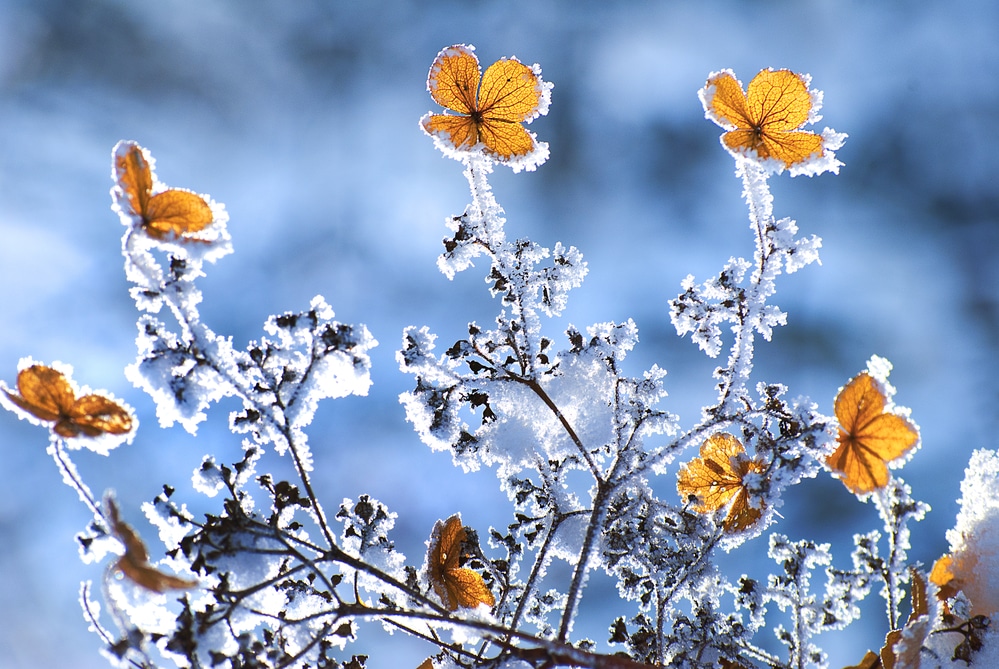According to NPR, Pennsylvania’s Punxsutawney Phil is calling for six more weeks of winter. Meanwhile, New York’s Charles G. Hogg, who is fondly referred to as Staten Island Chuck, is predicting an early spring. Which groundhog’s forecast is right? Time will tell. In the meantime, keeping a few winter health tips for seniors in mind won’t hurt.
Winter Health Tips for Seniors
Winter has its perks. There are gorgeous views, fun sports, opportunities to snuggle close, warm winter clothing, and favorite winter comfort foods. However, winter’s cold temperatures, slippery precipitation, and seasonal illnesses mean that it can be a perilous time for people of all ages. Protecting yourself with these winter health tips for seniors is smart.
Be Proactive About Avoiding Falls
A new layer of snow makes the world look wintery and fresh. It’s a view that many delight in exploring. Whether you’re heading out to enjoy the sights of the season, exercise, or just to navigate from one place to the next, you’ll always need to be extra careful about falls during the winter. Snow, sleet, rain, and plunging temperatures can lead to slick surfaces. That increases the risk of falls. To protect yourself, use the following strategies:
- Wear well-fitting shoes with non-skid soles.
- Stick to cleared paths. Whenever possible, avoid icy or snowy areas.
- If you use a cane, make sure that the rubber tip is in good condition. When conditions are icy, consider using an ice pick-like attachment.
- Be aware of wet floors when you enter buildings.
- When you return home after a winter outing, consider shedding or changing your shoes to prevent a fall.
Be Mindful About Staying Warm
Hypothermia occurs when your body temperature goes too low. As the National Institute on Aging explains, a senior who experiences a body temperature of 95 degrees Fahrenheit or lower is at risk of heart attack, liver damage, kidney problems, and other severe health issues. To make matters worse, changes that come with aging can make it harder for seniors to notice that they are getting too cold.
To dodge dangerous drops in temperature, always dress appropriately for winter weather. Layers are a great choice. Indoors, keep your thermostat set to at least 68 degrees Fahrenheit. When it’s cold out, limit your time outside, and try to stay dry. Make sure that you have the proper gear, including a hat, gloves, and good footwear.
Make It a Point to Stay Social
The winter blues can be very real. With shorter days, colder temperatures, and winter weather making travel hazardous, many older adults limit their travel, so the chances to socialize are often reduced. Seniors who live in senior living communities have a major advantage because these communities have their own social calendars that continue to provide year-round opportunities for interaction without requiring residents to leave the community. However, older adults who lack these resources can be left feeling isolated and alone, which can lead to depression and anxiety. Stay social during the winter by reaching out to the people in your social network. If people don’t live nearby, consider using the phone or internet to connect.
Remember to Stay Hydrated
Heating systems tend to do a good job of keeping people warm. However, they often leave the air inside the buildings dry. Over time, this takes a toll on the body, so it’s important to make an extra effort to stay hydrated. While you may not realize that you’re thirsty, drinking water will help to rehydrate your body and protect your health.
Find Ways to Stay Active Safely
Do you normally walk outside when the weather is good? If you aren’t comfortable continuing outside during the winter because it’s too dark during your normal exercise time, it’s too cold for your comfort, or ice is a concern, you don’t have to stop being active. Instead, move your fitness routine inside. Walk at a local mall or store. Try water aerobics or swimming. Give tai chi a try. Or, exercise at home with an exercise video or online exercise class.

